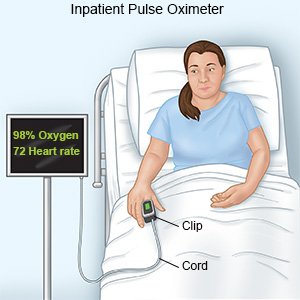RSV (Respiratory Syncytial Virus) Infection
Medically reviewed by Drugs.com. Last updated on Apr 6, 2025.
Respiratory syncytial virus (RSV) causes infection in your nose, throat, lungs, and airways. An RSV infection causes the airways to become swollen and filled with fluid and mucus. This infection may make it hard for you to breathe. An RSV infection is most common from fall through spring. An RSV infection may lead to other lung problems, such as pneumonia or bronchiolitis.
WHILE YOU ARE HERE:
Informed consent
is a legal document that explains the tests, treatments, or procedures that you may need. Informed consent means you understand what will be done and can make decisions about what you want. You give your permission when you sign the consent form. You can have someone sign this form for you if you are not able to sign it. You have the right to understand your medical care in words you know. Before you sign the consent form, understand the risks and benefits of what will be done. Make sure all your questions are answered.
An IV
is a small tube placed in your vein that is used to give you medicine or liquids.
A pulse oximeter
measures how much oxygen is in your blood. A small clip or sticky strip will be placed on your finger. A cord connects the oximeter to a machine. Do not remove the clip or sticky strip.
 |
Medicines:
- Antiviral medicine may be given to help decrease your symptoms.
- Acetaminophen may be given to decrease your pain and fever.
- Medicine to open your airway may be given. This medicine will decrease wheezing and make it easier for you to breathe. The medicine is mixed with air or oxygen in a machine to change it into a mist. The mist makes it easier for you to breathe the medicine into your lungs. The mist can be inhaled through a mouthpiece or mask.
Tests:
- Blood tests may be used to monitor your condition.
- A swab of the inside of your nose may show the infection. This sample is tested for infection.
- An x-ray may show fluid or swelling in your lungs.
Treatment:
- IV fluids may be given to treat or prevent dehydration.
- Oxygen may be needed if your blood oxygen level is lower than it should be. You may get oxygen through small tubes placed in your nostrils. Ask your healthcare provider before you take off the mask or oxygen tubing.
- Removal of mucus may be done by placing a small tube into your mouth or nose. This may help you breathe easier. Saline drops may be put into your nose to help loosen the mucus. You may need this treatment more than 1 time.
Treatment options
The following list of medications are related to or used in the treatment of this condition.
RISKS:
You can get an RSV infection more than 1 time. An RSV infection may make it hard for you to breathe. You may become dehydrated. You may need to stay in the intensive care unit (ICU) if the condition becomes severe.
CARE AGREEMENT:
You have the right to help plan your care. Learn about your health condition and how it may be treated. Discuss treatment options with your healthcare providers to decide what care you want to receive. You always have the right to refuse treatment.© Copyright Merative 2025 Information is for End User's use only and may not be sold, redistributed or otherwise used for commercial purposes.
The above information is an educational aid only. It is not intended as medical advice for individual conditions or treatments. Talk to your doctor, nurse or pharmacist before following any medical regimen to see if it is safe and effective for you.
Learn more about RSV Infection
Treatment options
Symptoms and treatments
Further information
Always consult your healthcare provider to ensure the information displayed on this page applies to your personal circumstances.
